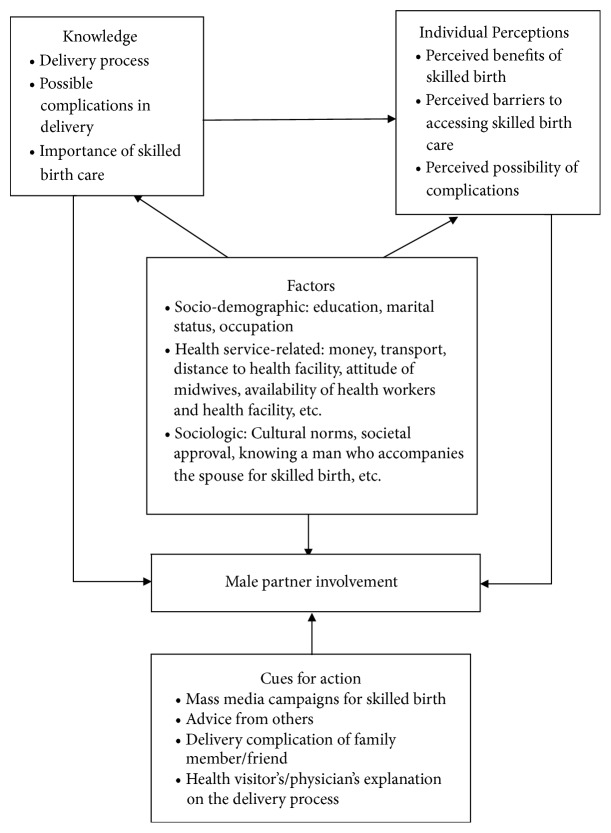Involvement of Male Partners in Skilled Birth Care in the North Dayi District, Ghana.
International Journal of Reproductive Medicine
Pub Date : 2019-07-01
eCollection Date: 2019-01-01
DOI:10.1155/2019/2852861
引用次数: 14
Abstract
Background With more than half of the global maternal deaths occurring in sub-Saharan Africa, skilled attendance during childbirth is essential in achieving safer births and lower maternal mortalities. Given that societal ascriptions of gender roles strongly influence the utilisation of skilled care by women, male partner involvement in skilled birth is essential. We explored male partner involvement in skilled birth at the North Dayi District of Ghana. Methods This qualitative study interviewed 14 mothers and their male partners, together with two health professionals. The participants were purposively recruited using in-depth interviews. Data collected were analysed manually, but thematically. Result Male partners had inadequate knowledge of childbirth and the skilled birth process as well as possible complications arising during delivery. Even though the male partners demonstrated positive perception towards skilled birth and their involvement in the process, their actual involvement in skilled birth care was generally low. Factors which inhibited most of the male partners from getting involved in skilled birth care were health facility nonconduciveness and occupation. However, motivations to do so were marital commitment and sense of responsibility, past experience, nearness to health facility, and safety and survival of partner and baby. Conclusion These findings imply that Ghana may not be able to meet the Sustainable Development Goal Three target of reducing its maternal mortality ratio from 216 to below 70 per 100,000 live births by 2030. Stakeholders in Ghana's health industry need to develop male accommodating skilled birth policies and approaches to promote male involvement in skilled birth care.

加纳北大伊区男性伴侣参与熟练助产。
背景:全球一半以上的孕产妇死亡发生在撒哈拉以南非洲,熟练的分娩护理对于实现更安全的分娩和更低的孕产妇死亡率至关重要。鉴于社会对性别角色的归属强烈影响女性对熟练护理的利用,男性伴侣参与熟练分娩至关重要。我们在加纳的北大邑区探讨了男性伴侣参与熟练分娩的情况。方法:这项定性研究采访了14位母亲及其男性伴侣,以及两位卫生专业人员。有目的地通过深入访谈招募参与者。收集的数据是人工分析的,但按主题分析。结果:男性伴侣对分娩和熟练的分娩过程以及分娩过程中可能出现的并发症了解不足。尽管男性伴侣对熟练分娩及其参与过程表现出积极的看法,但他们对熟练分娩护理的实际参与程度普遍较低。阻碍大多数男性伴侣参与熟练分娩护理的因素是卫生设施的非生产性和职业性。然而,这样做的动机是婚姻承诺和责任感、过去的经历、靠近医疗机构以及伴侣和婴儿的安全和生存。结论:这些发现表明,加纳可能无法实现可持续发展目标三的目标,即到2030年将其孕产妇死亡率从每10万活产216人降至70人以下。加纳卫生行业的利益相关者需要制定适应男性的熟练分娩政策和方法,以促进男性参与熟练的分娩护理。
本文章由计算机程序翻译,如有差异,请以英文原文为准。
求助全文
约1分钟内获得全文
求助全文

 求助内容:
求助内容: 应助结果提醒方式:
应助结果提醒方式:


